FAQ on Japanese Patent Practice
PCT National Phase Entry into Japan
By when a PCT national phase entry into Japan should be filed ?
If you already filed PCT application in your country, it is required to file a Petition for Entry within 30 months from the international filing day or the priority date, whichever is earlier.
Japanese translation must be filed together with a Petition for Entry ?
It is possible to file a Japanese translation of a PCT application later, within 2 months from the date on which the Petition for Entry is filed.
How much it would cost to file a PCT national phase entry into Japan ?
- Basic Filing Fee: JPY60,000
- Translation Fee: JPY25 (per English word)
- Government Fee: JPY14,000
Yes, in such a case, we will review the translation to satisfy the JPO’s formality requirements only with no additional charges. However, we recommend our IP attorneys’ proofreading (JPY5/word) before filing to proceed with later prosecution smoothly.
It is practically possible, but we make it a rule to refrain from translating any amendments at the time of entering the national phase so that we can avoid the possibility of putting a reason for rejection or invalidation into the application.
Is Power of Attorney required when filing patent application in Japan ?
No, under the current Japanese practice, it is practically not necessary to file a Power of Attorney at the time of the filing of the national phase entry into Japan.
However, when we receive instructions to enter the national phase in Japan with respect to a PCT application, we usually ask the applicant to have a General Power of Attorney duly executed and return the original copy to us.
The reason why we ask the clients in advance to provide us with the Power is that we would like to keep it in hand for the possible future instances. For example, a Power is required when filing an Appeal, but it is sometimes difficult for the applicant to provide us with the Power before the deadline.
Unlike the IDS system in the U.S., there are NO duty of disclosure requirements for patent applications in Japan. Only one thing similar thereto is a duty of describing prior art close to the claimed invention in the specification. Therefore, there are NO related deadlines. It is not required to add prior art information to the application once the application is filed. If the application has no such disclosure without any reason, the Examiner may order to submit prior art information which can be of help for examination.
We usually receive a notice of the Japanese patent application number from the JPO in a couple of weeks, but in some cases a few months after filing a Petition for Entry of the PCT application.
Yes. If you filed a PCT application in your jurisdiction, you can file a Petition for Entry into Japan and a full Japanese translation of the application by yourselves before the Japan Patent Office (without appointing a Japanese representative).
